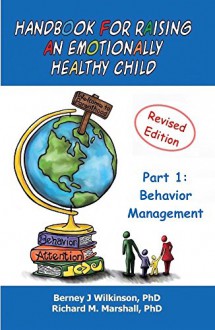Four years after publication of the Handbook for Raising an Emotionally Healthy Child, the book continues to garner the attention of parents, educators, and child experts. The updated and revised Handbook for Raising an Emotionally Healthy Child is an easy-to-read book that helps parents...
show more
Four years after publication of the Handbook for Raising an Emotionally Healthy Child, the book continues to garner the attention of parents, educators, and child experts.
The updated and revised Handbook for Raising an Emotionally Healthy Child is an easy-to-read book that helps parents understand and manage the intricate relationship among the three foundations of the parenting puzzle: Behavior Management, Attention, and Love.
Building on the success of the original text, the new edition offers additional insight and up-to-the-minute information to help parents understand and meet the needs of children from birth through adolescence. To expedite the availability of the revised book, each section will be released individually. Section One - Behavior Management - will be available first, followed by completely revised and restructured Section Two and Section Three.
The Behavior Management section focuses on the variability of child behavior across the developmental landscape. For example, behaviors experienced in the toddler years are considered inappropriate and problematic if they occur in adolescence. Each chapter will focus on a different developmental period; Birth to 2 years, 2 to 5 years, 6 to 10 years, and 11 to 18 years.
In each chapter you will learn about typical behaviors that emerge in each developmental stage. Through the use of case examples, you will gain a deep appreciation of concepts and learn practical strategies and perspectives that will assist you in managing these challenging times. For example, while we may not be able to prevent the “terrible twos,” we can certainly prevent them from becoming the “terrible threes” and “awful fours.”
The goal of this section is to help you understand better the root of your child’s behavior. Because when you understand why a particular behavior is occurring, you will realize that changing it through punishment is probably not the answer; that consequences are not the only tools in your kit; and that teaching is the best approach to ensure your child grows up happy and emotionally healthy.
show less

